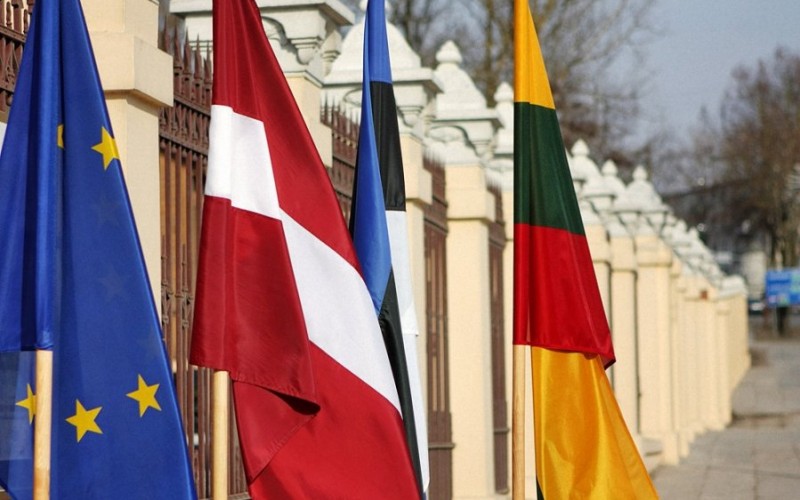In a fresh instance of saber rattling against the EU, Russia’s prosecutor-general has decided to review the legality of recognizing the Baltic States’ independence in 1991. While legal implications of the investigation will be minimal, the move will further increase tensions with the EU.

The Baltic States declared independence from the Soviet Union in 1990-91 and, after attempts to quell their ‘rebellion’ failed, were recognized by the Soviet Union’s newly created State Council in the last months of the Soviet empire.
The move to review the decision of the State Council was prompted by a request from MPs Yevgeny Fyodorov and Anton Romanov from Putin’s nationalist United Russia party (the prosecutor’s office is obliged to follow up on such requests). They argue that the Council is an unconstitutional body and, therefore, its decision is illegitimate.
Russia’s hybrid approach to conflicts
The Kremlin was quick to publicly distance itself from the investigation, which it claims not to have been aware of. A Kremlin spokesman stated that he “struggle[s] to understand the essence of the initiative”.
Even so, some see it as a Kremlin-directed ploy to justify Putin’s annexation of the Crimea last year. This far-fetched attempt tries to draw a parallel with Crimea, claiming that its switch to the Ukraine, approved by Nikita Krushchev, was illegal as well. It would fit in well with Russia’s hybrid approach to conflicts, exploiting ambiguity of intent and attribution.
The response from the Baltics has been outraged. Estonian Foreign Minister Keit Pentus-Rosimannus called the issue “absurd” and “yet another example of [Russia’s] resurgent imperialistic mood”. Lithuania’s foreign minister has called the move “legally, morally and politically absurd”. Officials in the Baltics also remember Putin’s statement last year declaring Moscow has the right to intervene with military force to protect Russian speakers abroad. All three Baltic States have sizable Russian-speaking minorities.
Backlash: military and economic
All this is taking place against a backdrop of large military exercises by Russia on the EU’s borders and tensions that have been steadily rising since Russia’s intervention in the Ukraine. In response, NATO has stepped up its military activity in the Baltics, in an effort to reassure them of allied commitment to their defence.
The legal investigation risks further increasing and prolonging the European economic backlash against Russia. In April this year, the European Commission launched a ‘Statement of Objections’ against Russia’s state-owned energy giant Gazprom, accusing it of breaking the EU’s antitrust rules and abusing its dominant market position. The investigation followed a formal complaint by Lithuania.
Although the Commission claims the case revolves purely around enforcement of EU competition rules, the influence of the geopolitical context is undeniable. The broader accusation is that Russia has used Gazprom and Russian energy resources as a tool in its foreign policy kit.
The move will also further embolden advocates of economic sanctions against Russia, which have recently been renewed for a year because of Russia’s annexation of the Crimea. These include a ban on new financing operations in the Russian Federation and an export ban on a variety of goods. Officials from the Baltics will likely become even more staunch advocates of such measures.
Diversification as a weapon against Russia
It is also likely to further incentivize Eastern European states to diversify away from their dependence on Russian energy.
Amid worries Russia could disrupt its supply of energy to Eastern European states in case of further escalations, Poland and Lithuania have already started building liquefied natural gas (LNG) terminals to end their dependence on Russian natural gas. These terminals open their markets up to LNG imports from countries like the US, as a viable alternative to Russian gas.
Lithuania has led the way in this regard. Last year, it acquired an off-shore liquefied natural gas (LNG) vessel. This has ended its reliance on Gazprom, up until then its sole supplier, and will enable Lithuania to export non-Russian natural gas to it neighbours. Underlining its significance, Lithuanian President Dalia Grybauskaite at the time called this “a strategic geopolitical project that may decide the future of the whole region”. In essence, it is an attempt to take energy policy out of Russia’s foreign policy kit.
While the investigation of the Baltic States’ independence will have no real legal consequences, it seems likely that Russia is shooting itself in the foot by adding to an already tense geopolitical situation. Russia will remain politically and economically isolated. Its behaviour strengthens the case for continuing tough economic sanctions and will be taken as a further sign the EU needs to lessen its dependence on Russia for vital energy imports.
sourche: http://globalriskinsights.com/2015/07/russia-reviews-baltic-states-independence-risks-further-backlash/
Δεν υπάρχουν σχόλια:
Δημοσίευση σχολίου